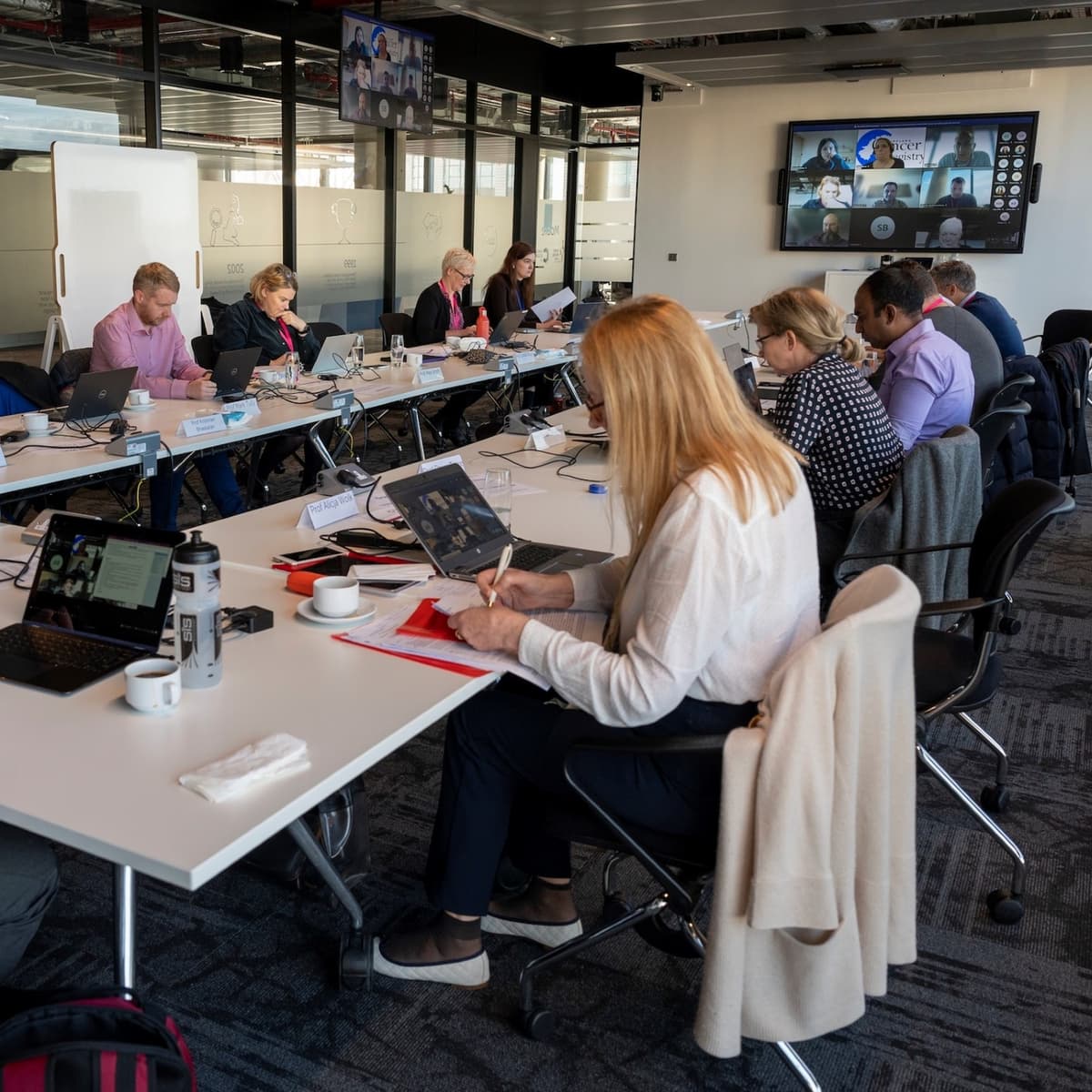Our Discovery Research Committee (DRC) supports a broad portfolio of research that provides a fundamental understanding of cancer. This research serves as a strong foundation for the translation of discoveries into new ways to prevent, diagnose and treat cancer.
The committee has a broad remit supporting research that spans different levels of biological organisation from molecular mechanisms to cellular behaviour and cancer at the whole-body scale. We fund multidisciplinary research that aims to create or apply novel technologies and methodologies, including for imaging and radiotherapy, to address previously intractable questions in cancer.
We also welcome investigations into all types of cancer and are particularly interested in proposals addressing our cancers of unmet need — brain, liver, lung, oesophageal, pancreatic and stomach — and children and young people’s cancer.
Explore our work in discovery researchThis scheme provides long-term support for established researchers to pursue an ambitious and creative programme of work addressing key questions in the cancer field. Proposals should be centred on a core overarching vision, explored via a set of connected aims. We encourage collaborative teams and multidisciplinary approaches.
This scheme is equivalent to the Discovery Programme Award but aimed at mid-career researchers seeking to further develop their independent research programme and scientific leadership. It is designed to support development of a strong foundation for future internationally-leading research and often serves as a pathway to our Discovery Programme Award.
The DRC meet twice a year to review applications with support from their expert peer review panels. They assess applications based on the quality and originality of the proposed work, relevance to cancer research and alignment to our research strategy.
Their assessment criteria include:
a strong scientific rationale, as well as appropriate experimental design and statistical analyses, to support the proposed research proposal
value in advancing the fundamental understanding of cancer or improving how cancer is diagnosed and/or treated
an excellent track record and potential to produce outstanding results
suitability and feasibility to carry out the proposed research and access to the resources and facilities required for the successful fulfilment of the award
added value of any proposed collaboration and the individual contributions, as well as the steps taken to ensure an effective collaboration
direct costs of the research, reasonably justified in line with the experimental plans, leveraging existing resources where appropriate
The terms of reference for this committee provide guidance for how they should assess all applications.
Read the committee's terms of reference(PDF, 489 KB)
Dr Simon Boulton - The Francis Crick Institute
Professor Sophie Acton – University College London
Professor Ido Amit – Weissmann Institute of Science
Professor Francis Barr – University of Oxford
Dr Renata Basto – Institut Curie
Professor Andrea Brand – University of Cambridge and New York University
Professor Dinis Calado – The Francis Crick Institute
Professor Elaine Dzierzak - University of Edinburgh
Professor Michaela Frye - DFKZ Heidelberg
Professor Raj Jena - University of Cambridge
Professor Sir David Klenerman – University of Cambridge
Professor Laura Machesky – University of Cambridge
Professor Simona Parrinello – University College London
Professor KJ Patel (Cancer Research UK Chief Scientist) – University of Oxford
Professor Daniel Peeper – Netherlands Cancer Institute (NKI)
Professor Dr Rob Pieters – Prinses Máxima Centrum
Professor Sergio Quezada – University College London
Professor Christian Siebold – University of Oxford
Professor Madalena Tarsounas - University of Oxford
Professor Steve Wedge – Newcastle University and Cancer Research Horizons

Early- to mid-career researchers can apply for the opportunity to observe our panel and committee meetings across our funding remit.

Each year we fund a wide range of new research through our response-mode funding schemes. Find out who has been recently funded and learn more about their research projects.